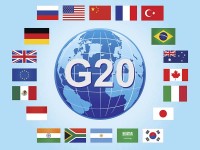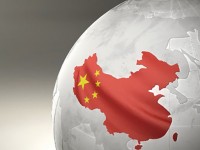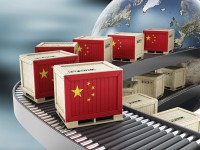
Zhou Shijian, Senior Fellow, Tsinghua Center for US-China Relations
Jun 16, 2016
Printing money and other misguided policies by developed economies in the wake of the 2008 crises were not successful in the long term. China’s policy of supply-side reform is applicable to other countries as well. Different countries may pursue different policies, but the overall theme should be to provide support to innovation, liberalize controls, encourage competition, and expand market access. Adopting this approach at the Hangzhou summit could contribute to rejuvenating the world economy and spur growth.

Dan Steinbock, Founder, Difference Group
Jun 14, 2016
As the U.K. is preparing for the EU referendum, both Washington and Beijing would like London to remain in the EU. Yet, the outcome is not under their control, despite the potential for regional, even global collateral damage.

Dan Steinbock, Founder, Difference Group
Feb 29, 2016
The U.S.-led petrodollar era has eclipsed. It is being surpassed by a multipolar oil age. The current transitional era is permeated by fundamental change, opportunism and speculation.
Zhang Monan, Deputy Director of Institute of American and European Studies, CCIEE
Feb 22, 2016
Since the global financial crisis of 2008, the growth track and pattern of the world economy have undergone dramatic changes, and maintaining an easy monetary policy by the central banks will not be enough to remedy the situation. New “supply substitution” is needed to improve the productivity and innovative output of all factors, and to earnestly promote global economic growth.

He Yafei, Former Vice Minister of Foreign Affairs
Jan 14, 2016
In a world of troubles, the ongoing re-shaping of the world order and global governance will require a meeting of minds and concerted actions from big powers.

He Yafei, Former Vice Minister of Foreign Affairs
Dec 17, 2015
China’s new developmental strategy of “innovative, coordinated, green, open and sharing” economic growth is echoed in the theme for the G20 Hangzhou Summit, demonstrating that a new world economic growth strategy is gradually taking shape. Efforts will be focused on four elements: innovation, improvement upon global governance, promotion of international trade and investment as well as inclusive and concerted development.
Dec 17, 2015
The Federal Reserve said on Wednesday that it would raise short-term interest rates for the first time since the financial crisis, a decision it described as a vote of confidence in the American economy even as much of the rest of the world struggles.

Sun Lijian, Associate Professor, Fudan University
Dec 08, 2015
When achieving a stable global economy supercedes local and political interests, and a sustainable rebound in the global oil prices begins to emerge, this will soothe the chaos in the geopolitical sphere, the price wars among the oil-producing countries, the sluggish investment and consumption in the world economy, the capital market’s negative judgment about the future business growth and the “liquidity trap” in the monetary policy.

Ding Yifan, China Forum Expert and Deputy Director of China Development Research Center
Nov 19, 2015
In the past, people measured China’s contribution to global economic growth through China’s GDP growth. But many factors in the GDP are the profits created by the foreign companies’ investments in China, so new ways of looking at the impact of China’s economy are in order.

He Yafei, Former Vice Minister of Foreign Affairs
Nov 11, 2015
Fluctuations in China’s currency and economy don’t have the wild effect on the global markets that many critics allege, and such accusations distract from a needed collective focus on maintaining stability.